There are many people who search for jobs and do not get many offers. That is one of the reasons why they start lying about their qualifications, skills and proficiencies. However, it is very risky if you lie about anything on your resume, as if you get caught, it can ruin your whole career. Resume solecism has become a very common issue in the recent competitive job market and the worst part of it is that they are not accidental, instead, they are intentional.
In today’s ambitious world, candidates have a fear that they are not good enough, and they worry of not being the same as their peers. The worst tension is that they do not get calls for interviews. So, in these situations, people do whatever it takes to get an edge over others.
Hence, lying on your resume can also put you skating along the same edge. Whether you tell a slight white lie or an overt fabrication, in case you are caught lying about it, that might easily destroy your career. Especially, in contemporary times when there is so much advancement of technology which has made easy to get caught.
Ways to validate the candidate’s resume if it is written honestly
1) Cross check on social accounts
Mostly, social media background checks are not that helpful, but few employers do think that they are. Checking candidate’s social accounts may reveal some bits of unflattering behaviour, but finding the right account is not that easy and it is time consuming as well. The only exception to these is LinkedIn.
If the applicant has a LinkedIn profile, then you can cross check there whether the information on the resume and LinkedIn are same or not. There can be some small discrepancies as at times people do not update their profile, but if the company’s name mentioned is same but job title or responsibilities are not the same, then the candidate can be easily caught.
2) Background checks
It is very convenient for the hiring managers to approach the previous employers/organisations and also the educational institutions to cross check with them that whatever is written on the resume is true or not. And in case if employers miss the false information before the candidate is hired, the job seeker is never off the hook. The applicant who lies in the resume is always in the risk of getting caught.
3) Skill Test
The best thing you can do about knowing whatever written in the resume is true or not is by doing a pre-employment test. In those tests, you can ask the applicant to demonstrate whatever is written on the resume.
For example in a resume, if it is written that the person is good at MS Excel, you can give him some test accordingly and check if he really knows that or not. Also if you are hiring the candidate for a technical process, then you can check if he is familiar with the software mentioned in the resume. As a person can lie in the resume but cannot deceive in on the spot demonstrations of skills.
4) Interview questions
A job interview is an interviewer’s chance to know more about the candidate and ask them in detail about the things mentioned in the resume. Every interviewer should use this opportunity really well and ask some really smart HR interview questions. You should be smart enough to check the resume closely and ask the questions accordingly, such as if the candidate has mentioned everything very close to the job description, then you should focus more on that. Or if in the job a particular course or degree is needed, you should ask the questions related to that so that it would become sure that the applicant knows about it well.
For example, if the candidate has mentioned everything very close to the job description, then you should focus more on that. Or if in the job a particular course or degree is needed, you should ask the questions related to that so that it would become sure that the applicant knows about it well.
You might not be able to know exactly if he is saying the truth or not, but according to his reactions and answers, you would get to know that he is deceiving or saying the truth. Fictitious stories usually tend to fall apart faster in conversations than they do on a resume. So, ensure that you note when the candidate is dodging questions.
5) Outsource Verification Company
If your company does not have too many people to do the reference check, you can outsource different companies who can do proper check of the candidate’s school, universities and about their previous companies. The fight for high-performing candidates is increasing day by day and employers are looking for a consistent, loyal, skilled candidate.
That is the reason why more businesses are seeking help of background check providers so that they can assist them in the employment screening requirements. These checks are the best as they expose if the candidate is lying about any detail mentioned in the resume.
Outsourcing can also help in saving your valuable time and money both. It enhances efficiency and benefit by ensuring that you stay compliant with the global workforce.
Last words
In this world of imperfection, we cannot expect that every resume is perfect and right. So, to be much sure about the candidate’s resume, every interviewer should ask appropriate questions, do a proper background check and follow all the above-mentioned steps before hiring him/her.
Doing a proper background check of the candidate is vital for an organisation as it saves a lot of time and efforts because a company invests a lot of time giving training and delegating the work. And after that, if at some point it comes out that the candidate was lying about anything mentioned in the resume it would be a sheer disappointment and the employer would have to start looking for another employee and start from the scratch. So, it is always better to be sure before about his qualifications and all the things mentioned in the resume.
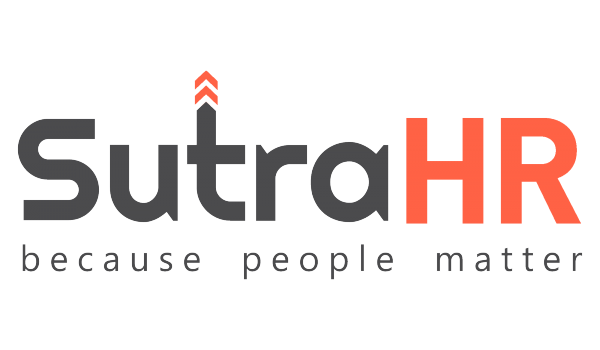


































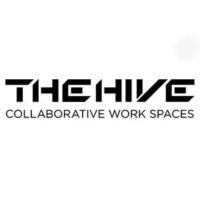




















































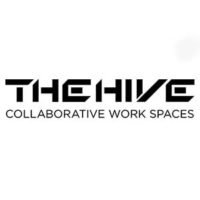









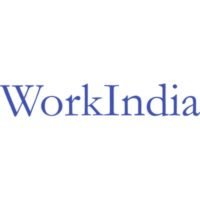




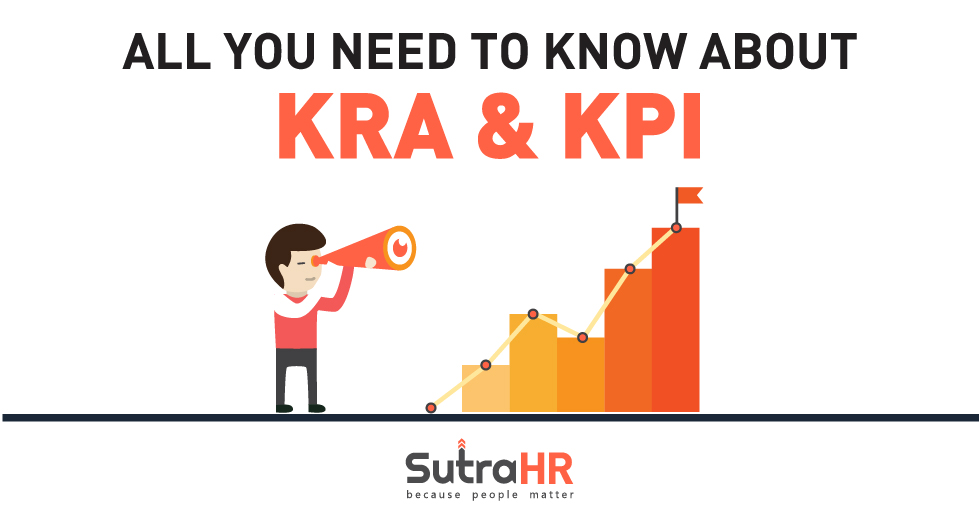









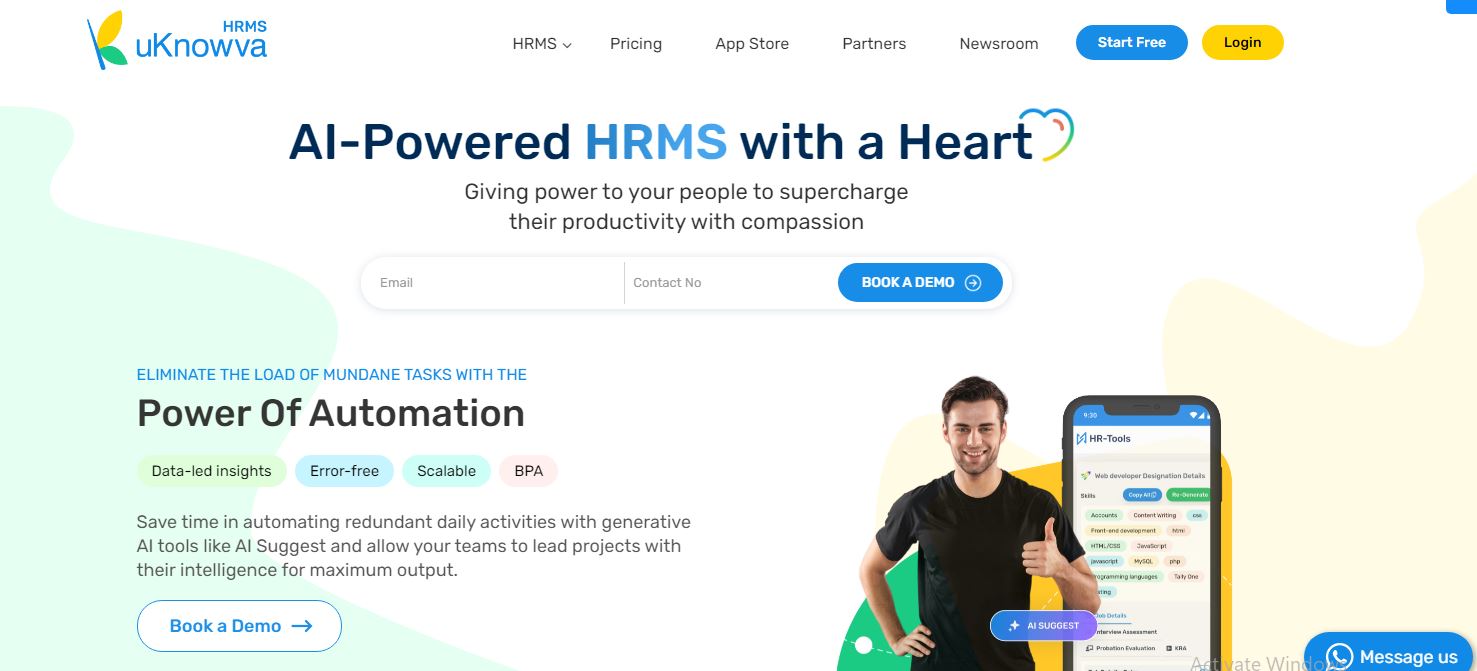 uKnowva HRMS is a mobile-enabled enterprising platform to scale and
uKnowva HRMS is a mobile-enabled enterprising platform to scale and 
















 Carbonmade has millions of portfolios and projects by professionals from the creative arts (and it’s fun to browse through). You can investigate the work of designers, copywriters, photographers, architects and other creative types.
Carbonmade has millions of portfolios and projects by professionals from the creative arts (and it’s fun to browse through). You can investigate the work of designers, copywriters, photographers, architects and other creative types.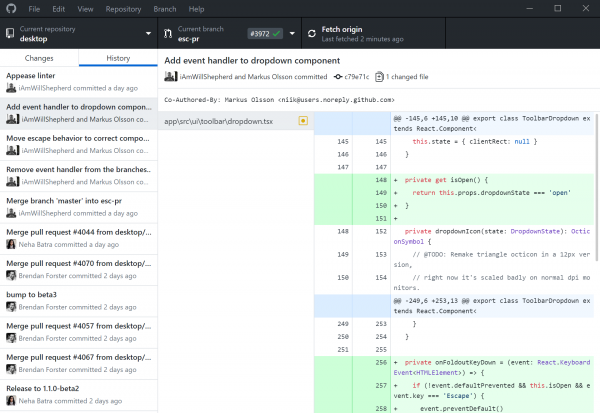 Github is a well-known platform for developers and a great place to look through candidates’ code and projects. If you’re hiring IT professionals, Github has a lot to offer.
Github is a well-known platform for developers and a great place to look through candidates’ code and projects. If you’re hiring IT professionals, Github has a lot to offer.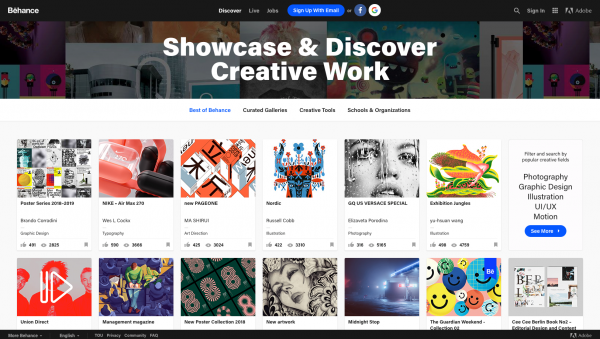 If you’re on a mission to hire the best creative professionals, then Behance’s huge network is a good option. While browsing portfolios and projects from all over the world, you can perform targeted searches according to schools, colors, and tools used for each project (like AutoCAD). You can post jobs on Behance too.
If you’re on a mission to hire the best creative professionals, then Behance’s huge network is a good option. While browsing portfolios and projects from all over the world, you can perform targeted searches according to schools, colors, and tools used for each project (like AutoCAD). You can post jobs on Behance too.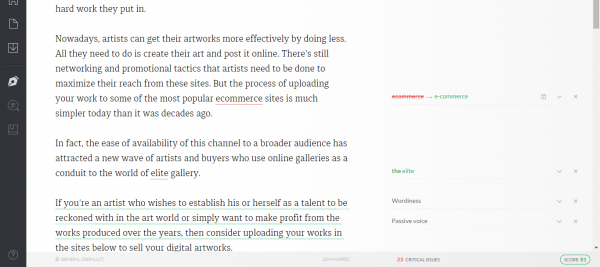 Keep the Grammar Police off your back with this free chrome plugin that checks your grammar and spelling as you write online. What’s not to love?
Keep the Grammar Police off your back with this free chrome plugin that checks your grammar and spelling as you write online. What’s not to love?
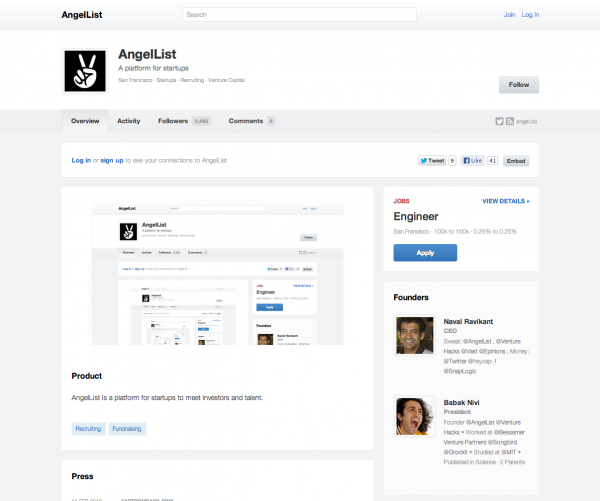
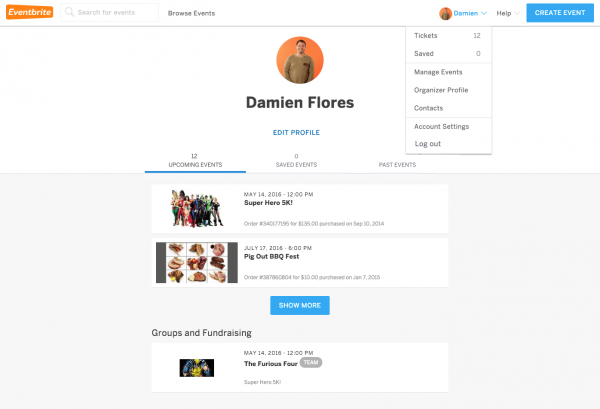 Where people host, promote and browse events by category and location. Using Eventbrite, you can choose events where you’re likely to find candidates who are interested enough in their profession to take time out to learn about the latest trends.
Where people host, promote and browse events by category and location. Using Eventbrite, you can choose events where you’re likely to find candidates who are interested enough in their profession to take time out to learn about the latest trends.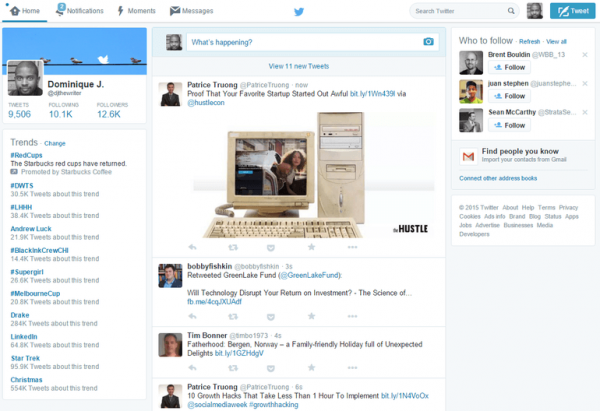 Twitter can be a great ally in so many ways. Reach out to those who tweet with hashtags relevant to your business (e.g. #HRTechConf) and participate in conversations. Twitter’s advanced search is also a good way to find relevant hashtags and people.
Twitter can be a great ally in so many ways. Reach out to those who tweet with hashtags relevant to your business (e.g. #HRTechConf) and participate in conversations. Twitter’s advanced search is also a good way to find relevant hashtags and people. 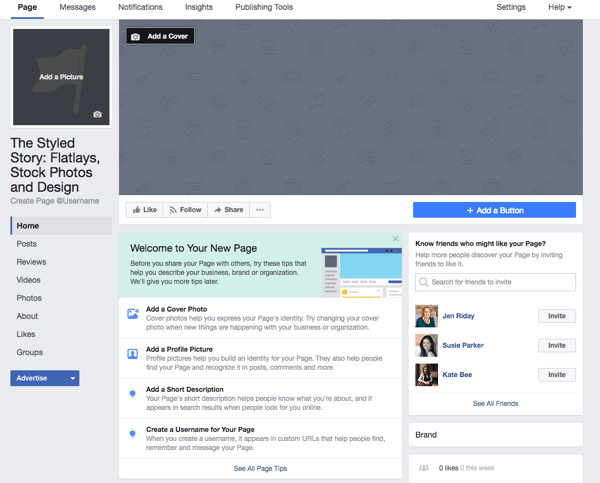 Facebook provides easy and affordable ways to increase your applicant pool. Use the Facebook Directory to search for users, pages, groups, and applications. You can post a job for free on the Facebook Marketplace. The ad requires basic information such as location, job category, subcategory, title, etc,. Facebook pages are free sources that enable you to share your business and products with the users. Facebook Ad is another option in which you can choose the exact audience that you are looking to target. The options are endless to how narrow a field you can define. Be careful to not make the criteria too specific or you may not get the applicants you want.
Facebook provides easy and affordable ways to increase your applicant pool. Use the Facebook Directory to search for users, pages, groups, and applications. You can post a job for free on the Facebook Marketplace. The ad requires basic information such as location, job category, subcategory, title, etc,. Facebook pages are free sources that enable you to share your business and products with the users. Facebook Ad is another option in which you can choose the exact audience that you are looking to target. The options are endless to how narrow a field you can define. Be careful to not make the criteria too specific or you may not get the applicants you want. 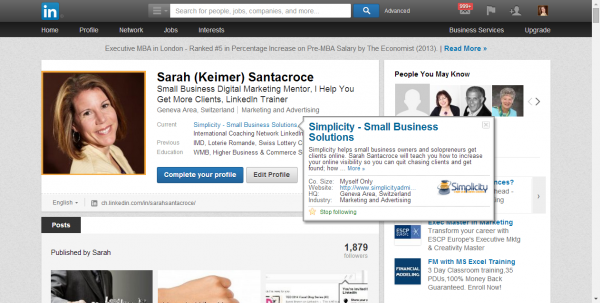 Start by building connections with people you already know. Former co-workers, current clients, local entrepreneurs and even friends and family. Because you never know who someone else may be connected too that could make for a top-notch candidate. Join relevant groups and interact with active members asking and answering questions. Use your network activity box (also known as a status box) to broadcast that you are hiring. “Looking for an IT consultant. If you know someone, even you. Contact me.” Check their profile to know about them before contacting them for an
Start by building connections with people you already know. Former co-workers, current clients, local entrepreneurs and even friends and family. Because you never know who someone else may be connected too that could make for a top-notch candidate. Join relevant groups and interact with active members asking and answering questions. Use your network activity box (also known as a status box) to broadcast that you are hiring. “Looking for an IT consultant. If you know someone, even you. Contact me.” Check their profile to know about them before contacting them for an 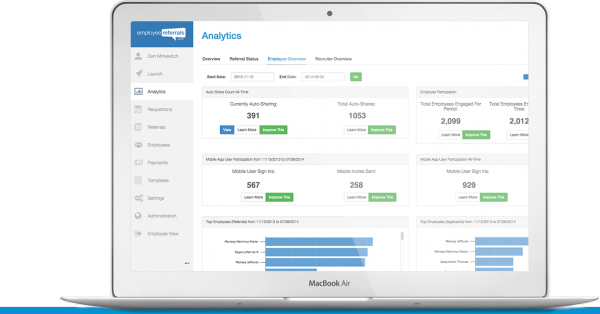
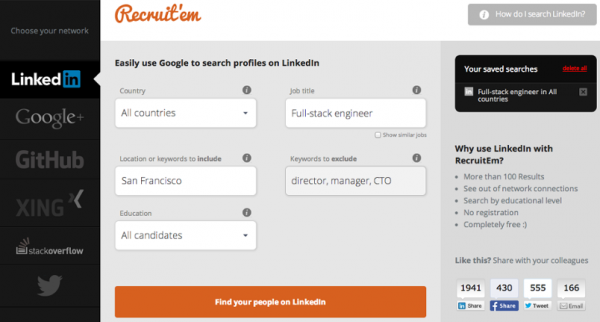 Recruit’em writes complex Boolean search strings for free. It allows you to search through social media such as LinkedIn, Xing and Twitter. Also when you don’t have enough time or patience to write long Boolean commands.
Recruit’em writes complex Boolean search strings for free. It allows you to search through social media such as LinkedIn, Xing and Twitter. Also when you don’t have enough time or patience to write long Boolean commands. 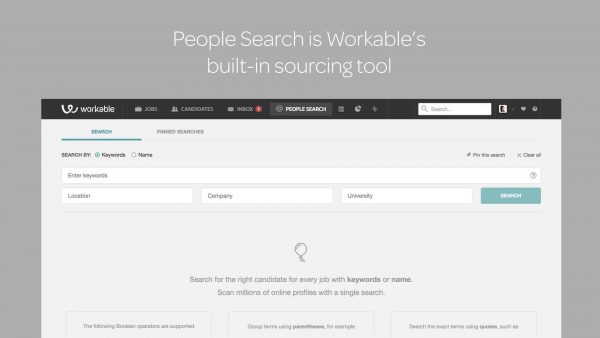 Often, you stumble upon a profile on a social or professional network or a name referral but you don’t have enough information to contact them. People Search from Workable is a Chrome extension that can remedy that. People Search is a free sourcing tool takes seconds to look through multiple sources and provide you with a full profile with resume and contact information.
Often, you stumble upon a profile on a social or professional network or a name referral but you don’t have enough information to contact them. People Search from Workable is a Chrome extension that can remedy that. People Search is a free sourcing tool takes seconds to look through multiple sources and provide you with a full profile with resume and contact information.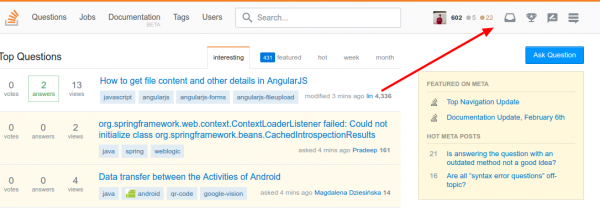 Designed for programmers, users can ask and answer questions. You can search users, see what questions they answered, and view the communities they are in. Information about people is on their profiles.
Designed for programmers, users can ask and answer questions. You can search users, see what questions they answered, and view the communities they are in. Information about people is on their profiles. 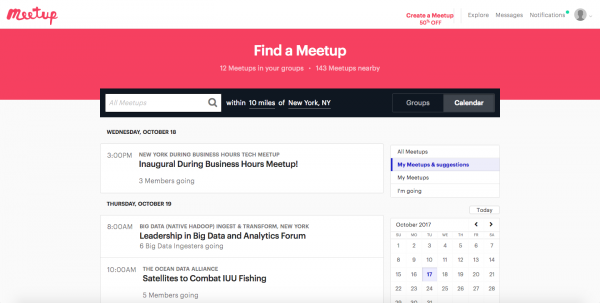 This site lets people form and join groups around the things they enjoy. Some based on hobbies, but there are professional groups, too. You can find people in professional groups and reach out to them about your open positions.
This site lets people form and join groups around the things they enjoy. Some based on hobbies, but there are professional groups, too. You can find people in professional groups and reach out to them about your open positions. 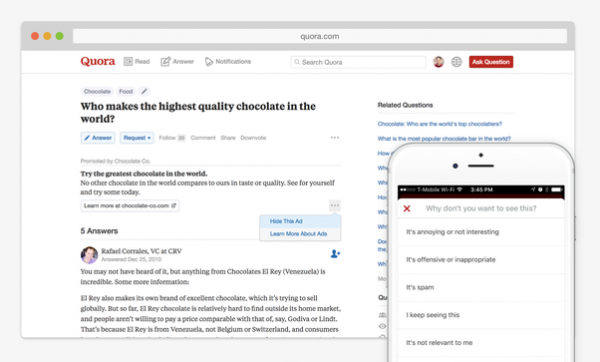 This is a knowledge-sharing forum site. People can ask and answer questions. You can search for industry experts who are answering questions on the site and reach out to them.
This is a knowledge-sharing forum site. People can ask and answer questions. You can search for industry experts who are answering questions on the site and reach out to them.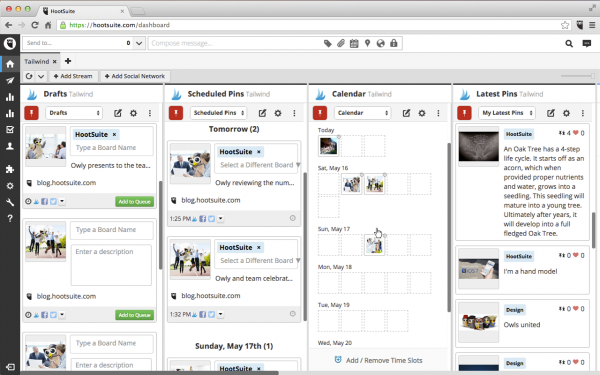 This recruitment tool lets you manage multiple social media profiles in one place. You can schedule content and see what performs the best with your followers. There are a free plan and multiple paid plans.
This recruitment tool lets you manage multiple social media profiles in one place. You can schedule content and see what performs the best with your followers. There are a free plan and multiple paid plans.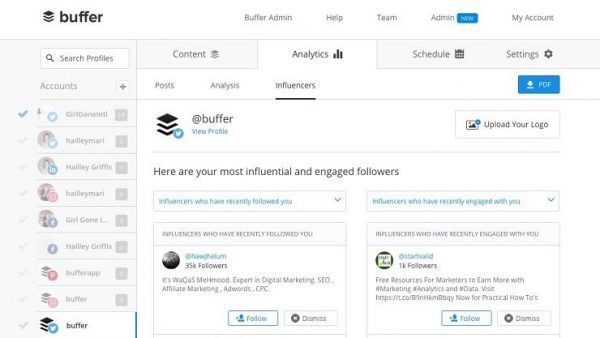 This recruitment tool also lets you schedule your posts to publish at a later time. You can view analytics from your posts to see what performs the best. There is a free individual account and paid accounts that have more features.
This recruitment tool also lets you schedule your posts to publish at a later time. You can view analytics from your posts to see what performs the best. There is a free individual account and paid accounts that have more features.
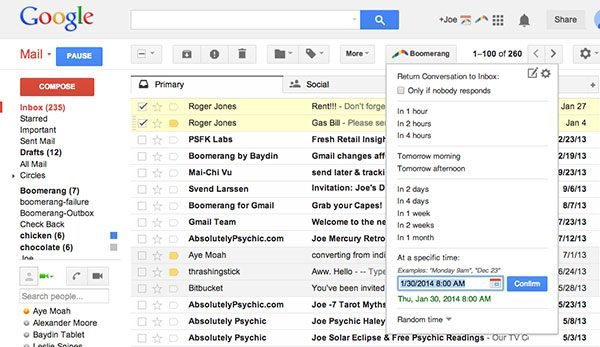 This tool integrates with Gmail accounts. You can schedule emails to send later. You can also set reminders to look at an email later or to follow up with messages that don’t receive a response. Includes a free basic account and paid accounts with more features.
This tool integrates with Gmail accounts. You can schedule emails to send later. You can also set reminders to look at an email later or to follow up with messages that don’t receive a response. Includes a free basic account and paid accounts with more features.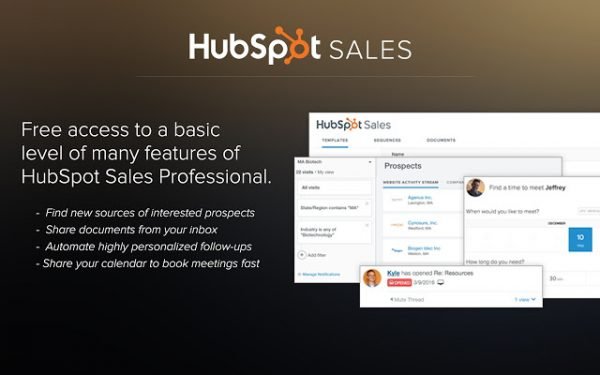 This recruitment tool will notify you the moment a recipient opens an email or clicks on a link. You don’t have to guess whether or not they saw your message. You can also schedule emails for a later time. HubSpot Sales works with Gmail, G Suite, Outlook, and Office 365. You can sign up for a free account, but a paid version is also available.
This recruitment tool will notify you the moment a recipient opens an email or clicks on a link. You don’t have to guess whether or not they saw your message. You can also schedule emails for a later time. HubSpot Sales works with Gmail, G Suite, Outlook, and Office 365. You can sign up for a free account, but a paid version is also available.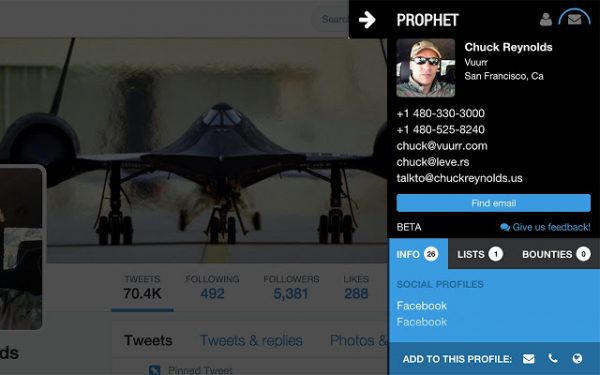 This sourcing recruitment tool is a Chrome extension that lets you find emails, phone numbers, and social profiles. You look at a person’s social media profile, and the extension will find their email, phone number, other social profiles, blogs, and other information.
This sourcing recruitment tool is a Chrome extension that lets you find emails, phone numbers, and social profiles. You look at a person’s social media profile, and the extension will find their email, phone number, other social profiles, blogs, and other information.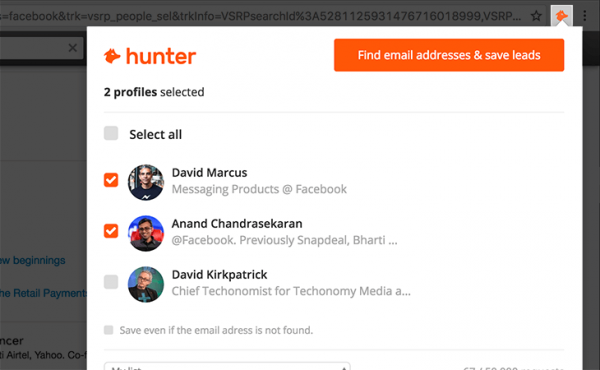 This tool searches for email addresses on websites. It’ll scour a domain and give you all the addresses it can find. Hunter will verify email addresses, too. You can also use Hunter to find email addresses when you go to LinkedIn profiles. You can start with a free account, and paid accounts will allow you to make more email address requests.
This tool searches for email addresses on websites. It’ll scour a domain and give you all the addresses it can find. Hunter will verify email addresses, too. You can also use Hunter to find email addresses when you go to LinkedIn profiles. You can start with a free account, and paid accounts will allow you to make more email address requests.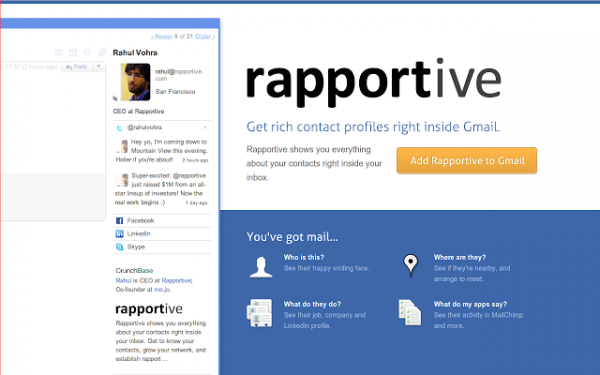 This is a browser extension that will give you information about your Gmail contacts. The extension pulls information from the contact’s LinkedIn profile. You can see basic information about your contact, along with the people you both might know.
This is a browser extension that will give you information about your Gmail contacts. The extension pulls information from the contact’s LinkedIn profile. You can see basic information about your contact, along with the people you both might know.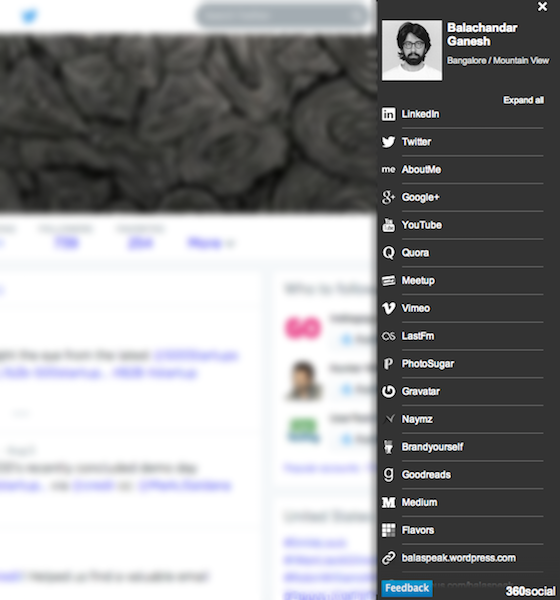 This is a browser plugin that lets you see information about people. You can see their picture, skills, current job, contact information, and social profiles.
This is a browser plugin that lets you see information about people. You can see their picture, skills, current job, contact information, and social profiles.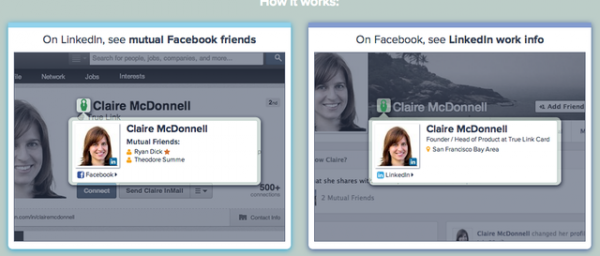 This Chrome extension intertwines your Gmail and social media accounts. When you are in your email or visiting someone’s social media profile, you can see your mutual friends, connections, and tweets. You can also see the person’s contact information.
This Chrome extension intertwines your Gmail and social media accounts. When you are in your email or visiting someone’s social media profile, you can see your mutual friends, connections, and tweets. You can also see the person’s contact information.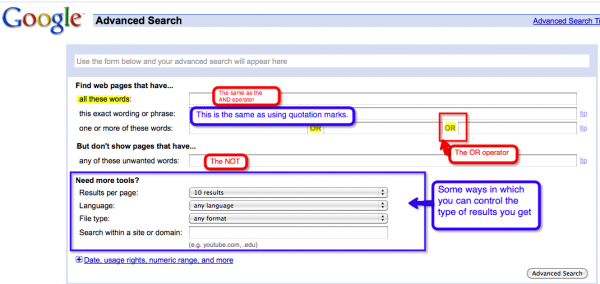 This isn’t a recruitment tool so much as a strategy. You can refine your web searches by using symbols and search operators in your search. By excluding items from your query, you get better search results that match what you are looking for.
This isn’t a recruitment tool so much as a strategy. You can refine your web searches by using symbols and search operators in your search. By excluding items from your query, you get better search results that match what you are looking for.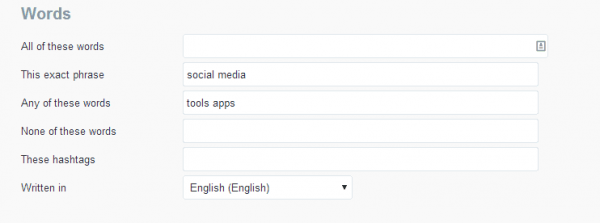 Similar to a Google search, you can type certain things into social media sites to receive better results. Social media sites typically have an advanced search option that makes searching for specific types of people easier.
Similar to a Google search, you can type certain things into social media sites to receive better results. Social media sites typically have an advanced search option that makes searching for specific types of people easier.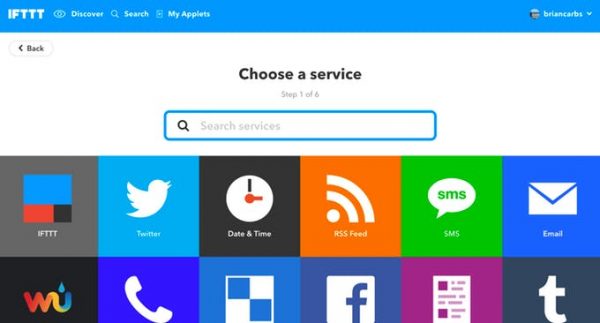 IFTTT, otherwise known as If This Then That is a tool for automating your life. Want to keep an eye on your competitors’ Twitter account? You can automatically put their Tweets into a Google Spreadsheet for you to analyze at a later date. As well as about a million other things.
IFTTT, otherwise known as If This Then That is a tool for automating your life. Want to keep an eye on your competitors’ Twitter account? You can automatically put their Tweets into a Google Spreadsheet for you to analyze at a later date. As well as about a million other things.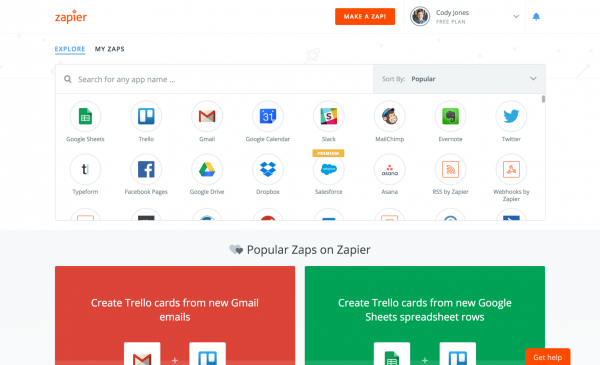





















 Started in 2007, SutraHR as a ‘fresher in Mumbai’ in one garage with 2 phones, 2 PCs, and 1 employee headed by Mr. Waqar Azmi, a fresh Engineering graduate who had discovered the vacuum of good ’employee providing industries’. In 3 years by 2010, he was able to recruit 1000+ candidates for 100+ clients and 30 employees. Now expanding globally, SutraHR is one of the most recognized and trustworthy names in the HR space.
Started in 2007, SutraHR as a ‘fresher in Mumbai’ in one garage with 2 phones, 2 PCs, and 1 employee headed by Mr. Waqar Azmi, a fresh Engineering graduate who had discovered the vacuum of good ’employee providing industries’. In 3 years by 2010, he was able to recruit 1000+ candidates for 100+ clients and 30 employees. Now expanding globally, SutraHR is one of the most recognized and trustworthy names in the HR space. Get hungry throughout the day? We’ve got you covered! Get access to free tea and coffee. Don’t worry we provide with 5 p.m. snacks to keep your mind running.
Get hungry throughout the day? We’ve got you covered! Get access to free tea and coffee. Don’t worry we provide with 5 p.m. snacks to keep your mind running. ‘Get shit done’ and have a chill – party with ‘everything inclusive’ to start your weekend right! Wow place to work – Jobs for freshers in Mumbai
‘Get shit done’ and have a chill – party with ‘everything inclusive’ to start your weekend right! Wow place to work – Jobs for freshers in Mumbai Got a task? At SutraHR get ‘complete freedom’ to complete your task. Get. Shit. Done. without compromising on QUALITY!
Got a task? At SutraHR get ‘complete freedom’ to complete your task. Get. Shit. Done. without compromising on QUALITY! If you are a dedicated fresher who comes to their job without taking leaves or shows up early to work? We keep in mind and award you with a little extra cash! Only fresher job in Mumbai with so many perks and more!
If you are a dedicated fresher who comes to their job without taking leaves or shows up early to work? We keep in mind and award you with a little extra cash! Only fresher job in Mumbai with so many perks and more!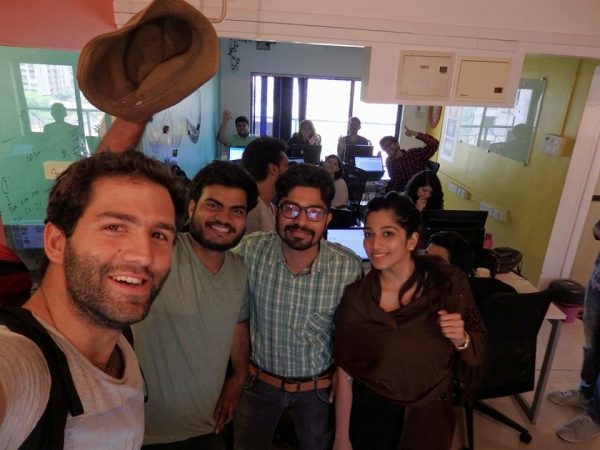 As a fresher looking for a job in Mumbai, you would surely learn more about the field as well as a lot more about the unwritten rules of the gamble called ‘life’
As a fresher looking for a job in Mumbai, you would surely learn more about the field as well as a lot more about the unwritten rules of the gamble called ‘life’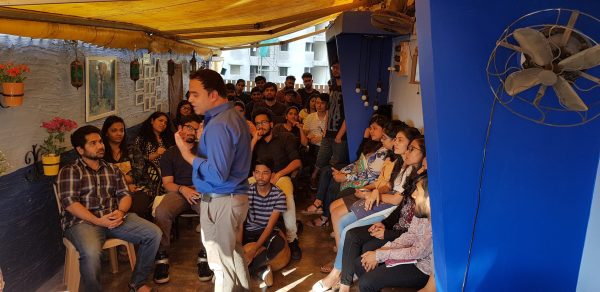 Get a chance to work straight with the CEO. You will find him on your floor (as he doesn’t believe in having a cabin/desk) as he communicates his ideas and goals directly with you. Get to know him as a person rather than a boss. Seeking jobs for fresher in Mumbai? Choose us!
Get a chance to work straight with the CEO. You will find him on your floor (as he doesn’t believe in having a cabin/desk) as he communicates his ideas and goals directly with you. Get to know him as a person rather than a boss. Seeking jobs for fresher in Mumbai? Choose us! Freshers looking for jobs in Mumbai often get into startups which are unorganized and scattered with their management. At SutraHR, we love organization and believe to work in the most organized manner.
Freshers looking for jobs in Mumbai often get into startups which are unorganized and scattered with their management. At SutraHR, we love organization and believe to work in the most organized manner. Are you a fresher looking for a job in Mumbai who is under 20? But your work defines as above 25! Don’t worry, we will give you more responsibility on the ability of your work rather than your age. Fresher job in Mumbai with international exposure only at SutraHR
Are you a fresher looking for a job in Mumbai who is under 20? But your work defines as above 25! Don’t worry, we will give you more responsibility on the ability of your work rather than your age. Fresher job in Mumbai with international exposure only at SutraHR You think a corporate job means wearing formals all the time? A fresher job in Mumbai with SutraHR can forget about them!
You think a corporate job means wearing formals all the time? A fresher job in Mumbai with SutraHR can forget about them! Looking for a quick break at Morocco? As a fresher searching for a job in Mumbai, you can have a quick break from the chaos of the city on our in-house Moroccan theme lounge. Breathe away fresh air to refresh yourself! Only fresher job in Mumbai with such comfort and beautiful luxury!
Looking for a quick break at Morocco? As a fresher searching for a job in Mumbai, you can have a quick break from the chaos of the city on our in-house Moroccan theme lounge. Breathe away fresh air to refresh yourself! Only fresher job in Mumbai with such comfort and beautiful luxury! 12.
12.  We respect practical work output more than what a paper and University has to say about you!
We respect practical work output more than what a paper and University has to say about you!
